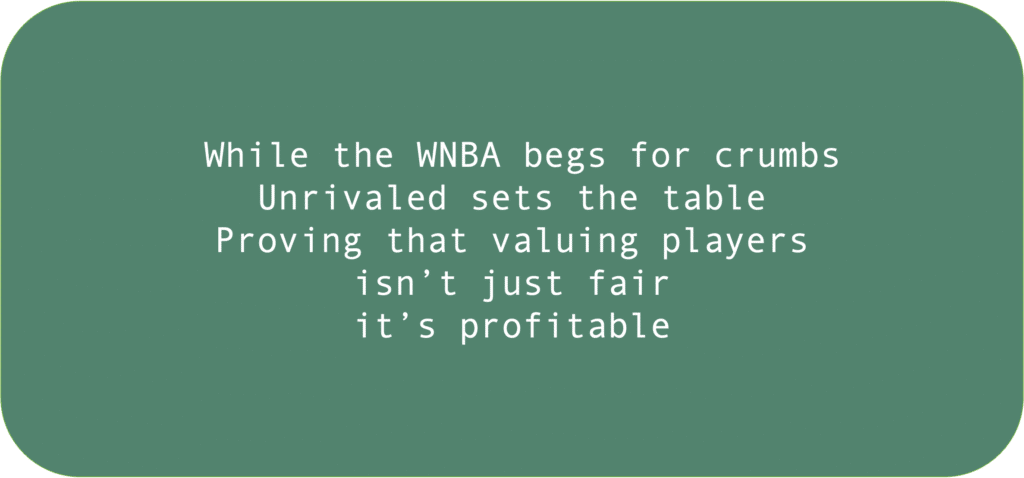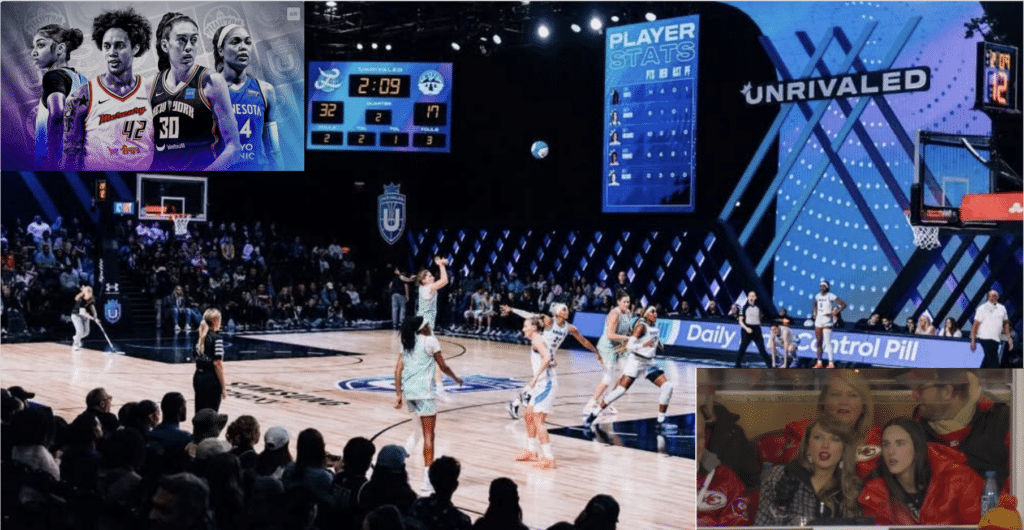
Unrivaled players will earn more than WNBA players
Imagine WNBA players earning better pay and enjoying superior amenities in the off-season than they do during their regular season. That’s the reality the women behind Unrivaled are creating with the new basketball league they launched last weekend. And they’re putting the men running the WNBA to shame, exposing just how much those men undervalue their players.
This is such a smart and sensible move it feels ordained by God. And, if there is a God, Unrivaled will be a tremendous success.
A safer alternative to overseas risks
Foremost, Unrivaled means WNBA players no longer have to endure the burden and risk of playing in overseas leagues during their off-season just to make ends meet. After all, the last thing America needs is another Brittney Griner ending up in a foreign prison, entrapped on trumped-up charges to be used as a political pawn. By creating a viable, lucrative domestic alternative, Unrivaled offers players safety, stability, and dignity.
WNBA stars Napheesa Collier and Breanna Stewart co-founded Unrivaled to offer a fresh, player-first approach to competition. The league’s 3-on-3 format, shorter court, and compact nine-week season balance intense competition with reduced physical strain. Players can showcase their skills, grow their brands, and, crucially, stay close to home. With equity stakes for players, Unrivaled is putting into action the words of female empowerment and opportunity.
The timing couldn’t be better. Interest in women’s college and professional basketball is soaring, and NIL contracts, along with corporate sponsors, are helping players redress long-standing grievances about WNBA compensation.

Caitlin Clark
Stars like Brittney Griner, Sabrina Ionescu, and Angel Reese are participating, making Caitlin Clark’s decision not to all the more conspicuous. Unrivaled made her a “substantial offer.” But Clark, who earns millions through endorsements with major brands like Nike and Gatorade, cited personal priorities and rest as her reasons for sitting out this year. Sure, because the other WNBA players participating don’t need rest…?
Clark’s refusal to participate in Unrivaled is like Michael Jordan refusing in his prime to play in the NBA All-Star Game. After all, this marquee event elevated the league’s visibility, drove record ratings, and fattened every player’s paycheck.
Jordan’s presence drew fans, sponsors, and media attention, just as Clark’s would have for Unrivaled. By sitting out, Clark isn’t just prioritizing herself; she’s leaving money and opportunity on the table for her peers, undermining the very solidarity that makes leagues thrive.
This is ill-advised. Clark just spent much of her first WNBA season enduring hard fouls and deflecting racial resentment. Much of this was because the media covered her as the league’s White savior, and sponsors turned her into the golden goose.
She would’ve been better advised to participate in the interest of WNBA solidarity and sorority. Her failure to do so will only deepen simmering resentment among fellow WNBA players. Because blowing them off to join Taylor Swift’s “girl squad” reeks of forgetting where you came from.
Unrivaled is putting the WNBA to shame
I cannot overstate the cultural shift Unrivaled represents. By prioritizing financial equity, domestic opportunities, and player well-being, it’s setting a precedent for other leagues, like the NWSL, to follow. WNBA stars no longer have to rely on overseas leagues — and questionable geopolitical alliances—to make a living.
Unrivaled isn’t just a smart idea; it’s a necessary one. Women’s basketball has always played second fiddle to its male counterpart, but this league proves that innovation and ambition can create a better future for athletes and fans alike. The question isn’t whether Unrivaled will succeed, but how much it will inspire the sports world to finally give women’s athletics its due. Yeah, I prefer women’s tennis, too.